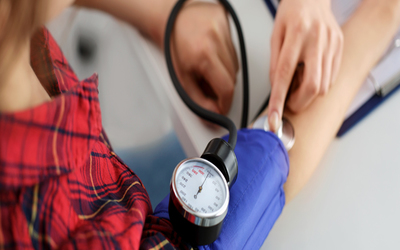High Blood Pressure, is a ‘silent disease,’ as this particular disorder does not have any discernible symptoms.
[the_ad id=”14222″]
In India, roughly 30% of the population has hypertension, with only about 40% knowing about the condition. High Blood Pressure is associated with other heart issues and with stroke. On the other hand, low blood pressure can also occur. Arming yourself with the necessary knowledge about hypertension and hypotension can not only help you manage it better but can also help those around you?
What Is Blood Pressure?
Blood pressure is the force of your blood in your blood vessels. The heart pumps blood into your blood vessels; the corresponding pressure is known as systolic blood pressure. When the heart is at rest in between heartbeats, the blood pressure drops; this is known as diastolic blood pressure. Blood pressure is represented as a systolic blood pressure over diastolic blood pressure.
Optimal blood pressure is 120/80 mmHg. If your blood pressure is between 120/80 and 140/90 mmHg, you are at a risk of developing hypertension. If your blood pressure is 90/60mmHg then you probably have hypotension.
What Are the Risk Factors for High and Low Blood Pressure?
Most risk factors for high blood pressure are associated with one’s lifestyle. You are at an increased risk if you are overweight/obese, smoke, drink alcohol, exercise rarely, and if you have unhealthy sleep patterns. You are also at risk if you are over the age of 60, or if it runs in the family. Low blood pressure may be associated with pregnancy, some hormonal disorders like hypothyroidism, anemia and blood pressure lowering medication.
How Do I Deal With My Hyper and Hypotension?
The very first thing you need to do is make healthy lifestyle choices. Incorporate light exercise into your daily routine. Besides this, you will need to cut down on your intake of alcohol and salt; stop smoking; refrain from consuming oily and fried food, and aim to get at least six hours of sleep at night. Now, these are things that you can do. Additionally, for low blood pressure, remember to drink plenty of water, eat small frequent meals, refrain from making sudden movements and rest a little after each meal. Also, avoid standing or sitting for prolonged periods.
However, the doctor may prescribe you some medications to keep your high blood pressure under control. Low blood pressure rarely needs medication. So, do not forget to regularly monitor your blood pressure!
Source:

